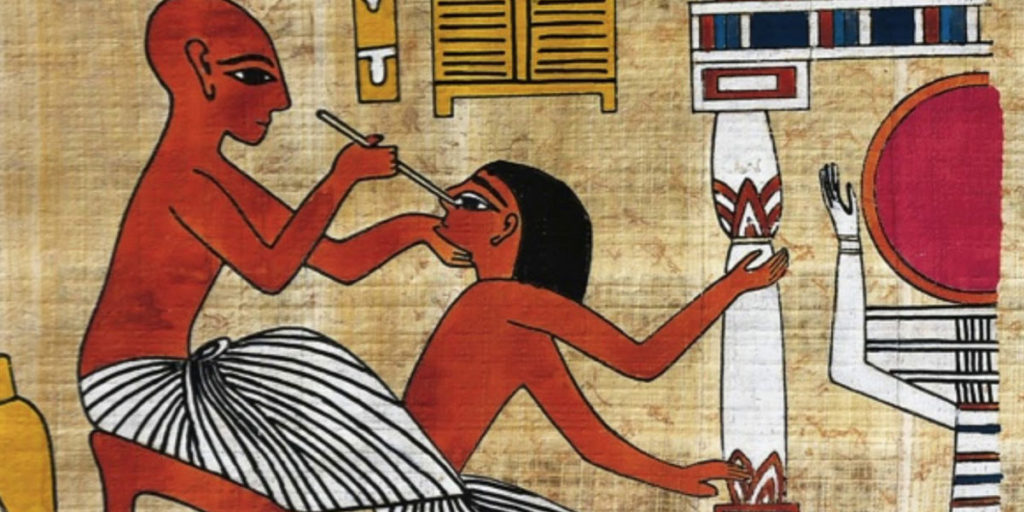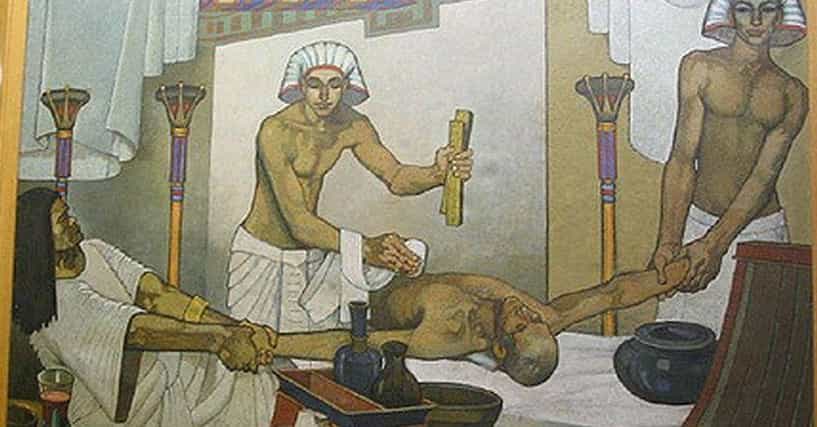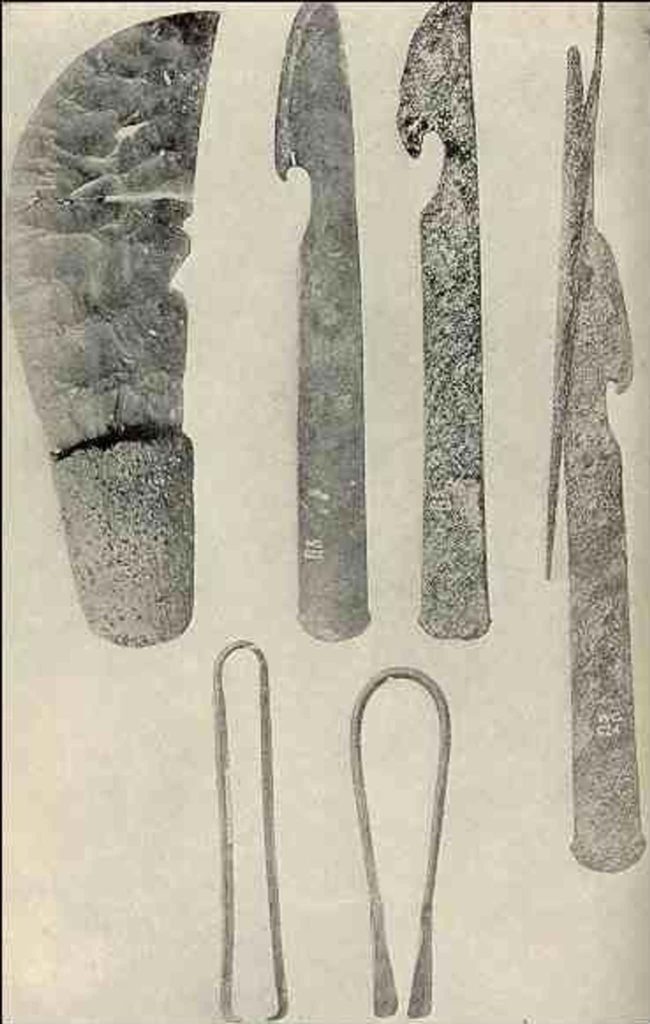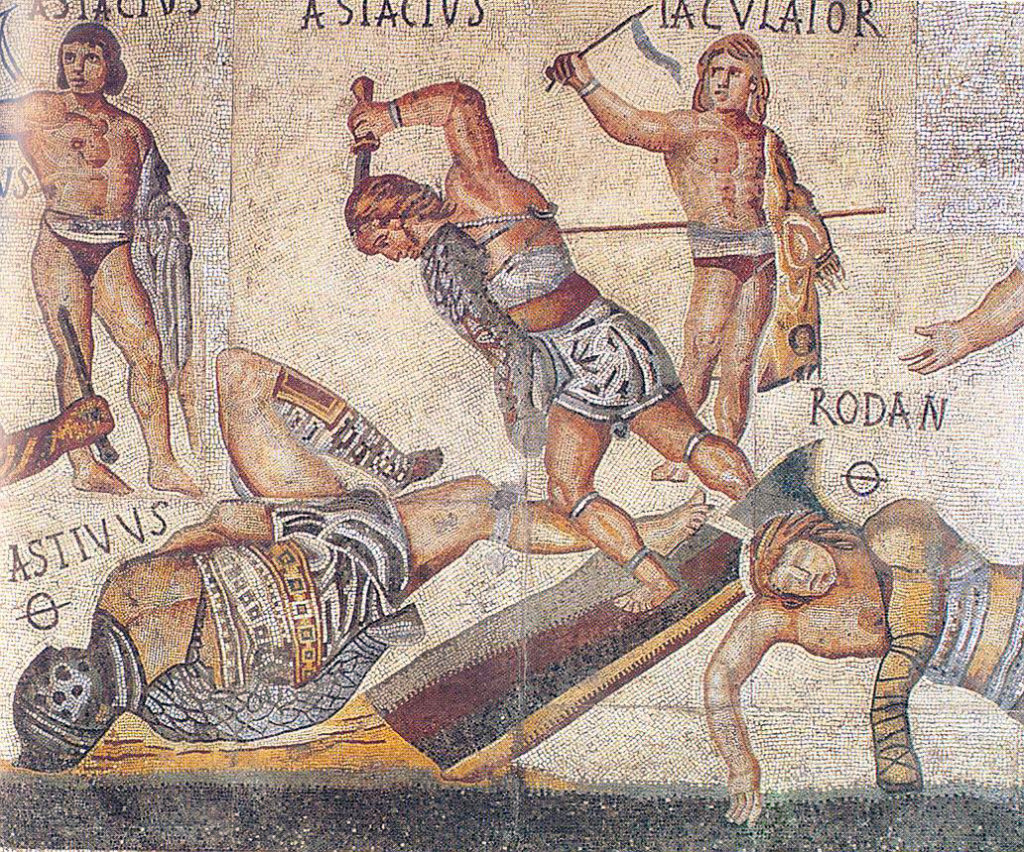Last updated on January 27th, 2023 at 05:15 am
Surgery is an ancient practice that dates back to ancient Egypt. However, the first surgeries were performed with crude tools and techniques that physicians had to refine over time.
Let’s look at surgery practices in ancient Egypt, including the tools used and the procedures performed. We will also explore what knowledge they acquired and what influenced their medical practices.

Ancient Egypt
Ancient Egypt lasted from about 3300 BC to 525 BC. It was one of the most advanced early civilizations, with remarkable art, architecture, and medical advances.
Overall, the society was well-structured and included a hierarchy of organized government, law enforcement, and an agricultural community.
The Egyptians were also one of the first cultures to develop and use surgery. The first evidence of surgery dates back to ancient Egypt, around 2700 BC.

The Egyptians were pioneers in medicine and surgery and developed many tools and techniques still used today.
The lack of knowledge did not deter them from performing surgical operations often, as they constantly tried to improve their methods. While they didn’t perform extensive surgeries like surgeons do today, they established solid medical principles based on sound reasoning.
In addition, they used simple tools and kept medical records to help future physicians learn from their observations to accomplish their procedures.
Various Medical Practices
Ancient Egyptian surgeons performed many procedures recorded in documents known as the Edwin Smith Papyrus and the Ebers Papyrus. Of course, there are also many more documents.
Still, it includes material that dates back to 3400 BC, making them the oldest preserved medical records in history. It’s important to note that Egyptian doctors performed their procedures without several modern amenities that exist today.
- Egyptians had a realistic understanding of the function of major organs
- They knew that vessels carry blood around the body
- Anesthetics were not available
- Surgical practices were recorded and then later taught to physicians
- Healing methods based on religious belief were often paired with surgical procedures
It is often speculated that the Egyptians were the first society to invent male circumcision. While the exact origins are unknown, history tells us that the Egyptians shared this practice with other nearby cultures.
Contrary to modern techniques, Egyptians appeared to perform these circumcisions based on rituals. During a male’s pre-adolescent phase, they would perform circumcision and commemorate his transition into manhood.
Despite their advances in medicine, their diets weren’t on par with their knowledge, and often Egyptians did not have a great set of teeth.
They used tools to grind food, but often that involved using sand or stone, which would leave traces in their food. These materials are naturally abrasive and would cause tooth loss early.
According to the Ebers Papyrus, treating a toothache was rubbing a powdered mixture of onion, cumin, and incense on the tooth.
There are even cases where dentists fill cavities with resin and a greenish mineral containing copper. They would even drill into the jawbone to drain abscesses of fluid; however, tooth extraction was rarely used.
Women and Medicine
If you studied Egyptians, you might consider them progressive. Women and men had equal rights in their society, especially in medicine.

With that said, Merit-Ptah (2700 BC) is the first known woman physician in history and likely held the title of “Chief Physician,” meaning that she could teach, supervise male and female peers, and attend to the monarch of her time.
Egypt probably also had the first instances of prosthetics. A female mummy found in Luxor, Egypt, was found to have a prosthetic toe made out of wood and leather.
The standard footwear at that time was sandals; without her big toe, she would likely have difficulty walking. The ability to create a prosthetic digit of this caliber was terrific for the time, and the joint showed significant signs of wear and tear.
Egyptians continued to show their innovation and knowledge of the human body. To perform surgeries, they had to craft practical tools. Physicians made most of their instruments out of copper, which had recently been discovered.
At the time, Egyptians had primitive pincers, forceps, spoons, saws, and knives, all tools used in the medical profession today. They even made bandages infused with willow leaves to reduce inflammation, a practice centuries ahead of their time.
What Influenced Their View Of Medicine?
The Egyptians had a realistic understanding of the function of major organs, vessels, and systems in the body. The medical community gained this knowledge through both observation and autopsy.
However, while their views were primarily based on scientific observation and trial and error, they also held religious beliefs that influenced their medical opinions.
The Egyptians believed that the gods and goddesses controlled everything in the world, including the human body. Furthermore, they thought that demons and spirits caused illness and injury and that surgery was a way to remove these spirits from the body.
Despite their reliance on supernatural superstition, Kings and Queens of faraway lands sought their expertise, for Egyptian doctors had an excellent reputation.
Physicians understood the fundamentals of family planning, mental illness, dental problems, skin problems, and psychology (mental disorders).
In addition, the Egyptians put outstanding stock in gods, evil forces, and disasters, so physicians utilized magic and religion simultaneously to treat ailments.
Most of the time, priests and doctors were considered the same people, which meant incantations, amulets, offerings, and tattoos were common practices.
Because of their devotion to magic and religion, their rituals likely had a placebo effect on their patients.
Although there wasn’t a strict public hygiene and infrastructure system, the ancient Egyptians did have a sense of cleanliness. They developed a hygiene system based on religious beliefs and rituals to combat these evil spirits.
The Egyptians believed washing their hands and bodies would purify and cleanse them. They also believed that certain aromas would ward off evil spirits. They wore nets to stop mosquitos and malaria outbreaks and regularly washed their utensils and clothing to protect themselves.
Egyptian Medicine
The Egyptians were likely the first society to have professional doctors and surgeons. Their medical practices were based on science and religion. Their methods were sophisticated and based on experience. Even if they weren’t right sometimes, their efforts were remarkable for the period.
This knowledge was recorded and passed down through the ages. Fortunately, we can access this information and learn from our mistakes. We are lucky they took the time to document their findings, which has helped us understand the human body and develop better medical practices.
Related Articles
If you enjoy this article, read some related pieces:
The Lovers of Valdaro – A double burial from Neolithic Italy

